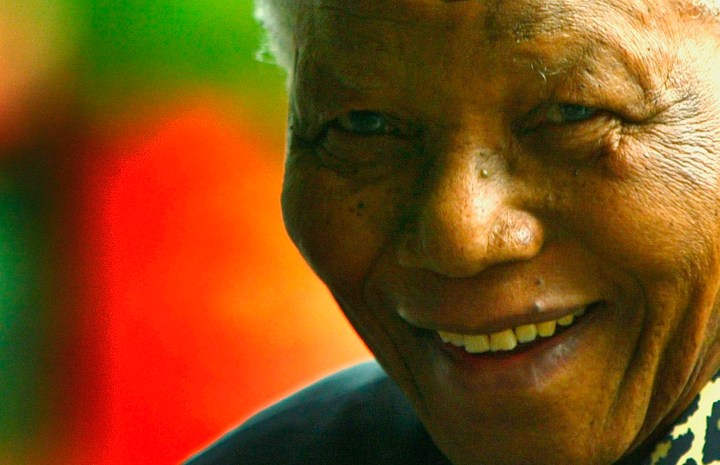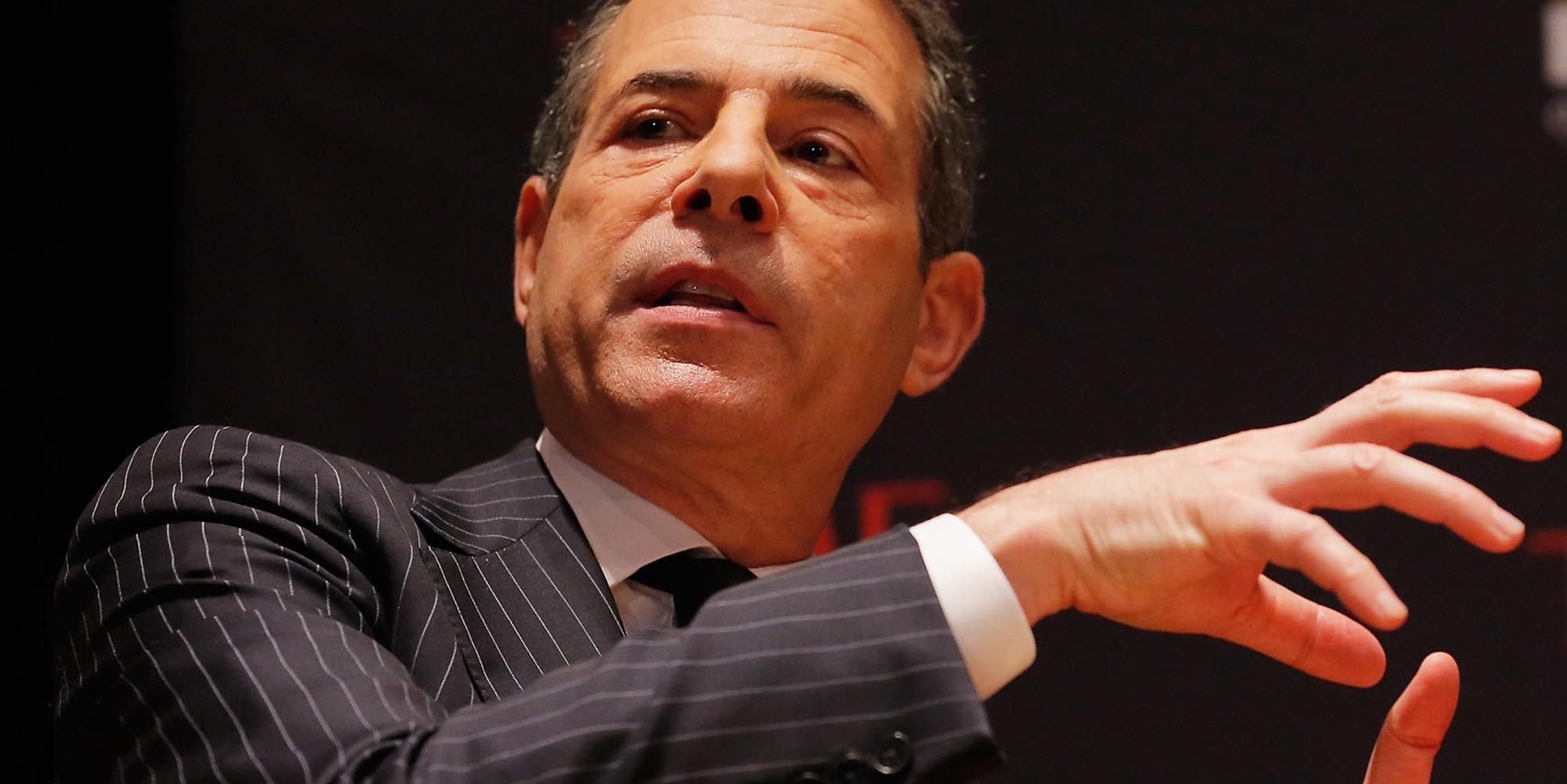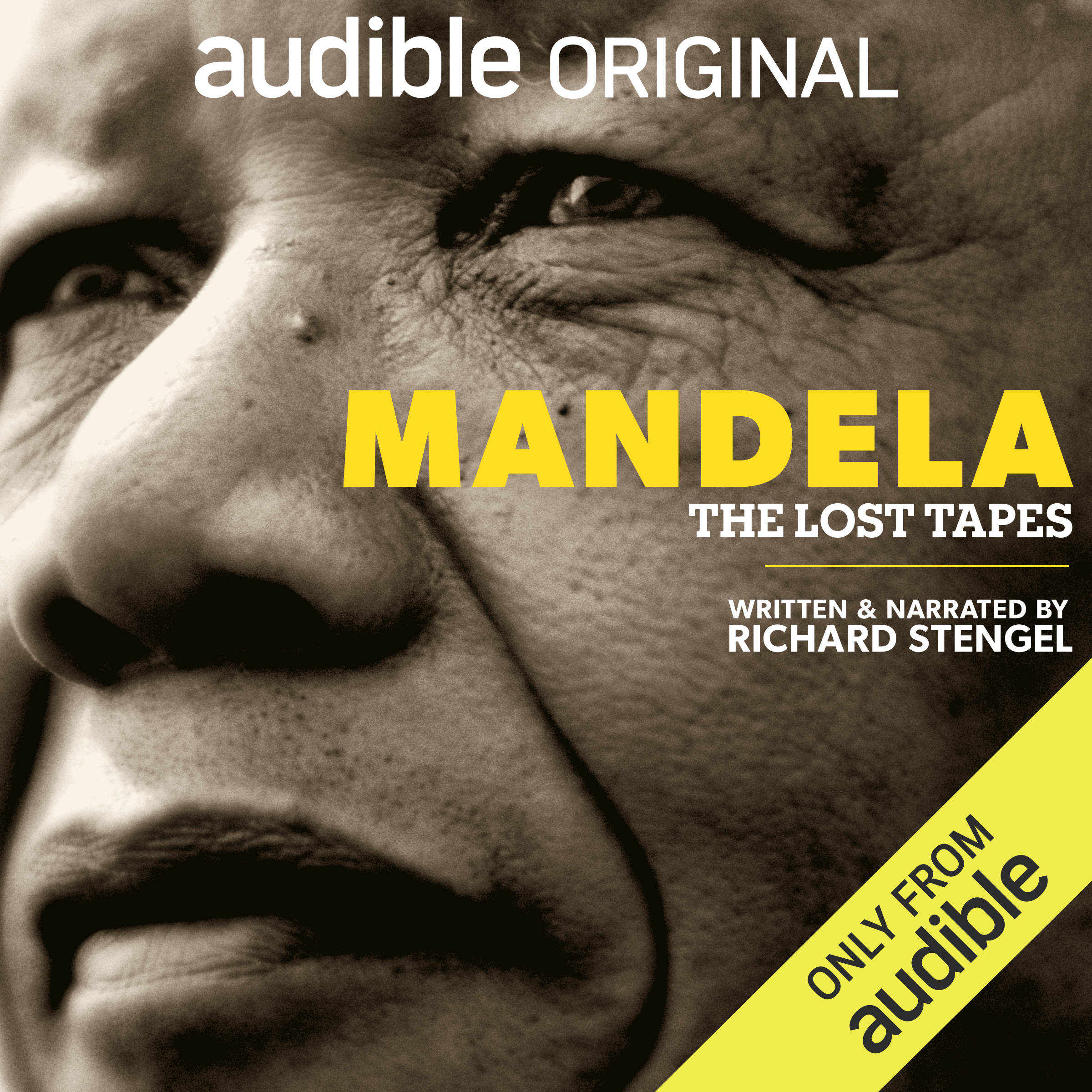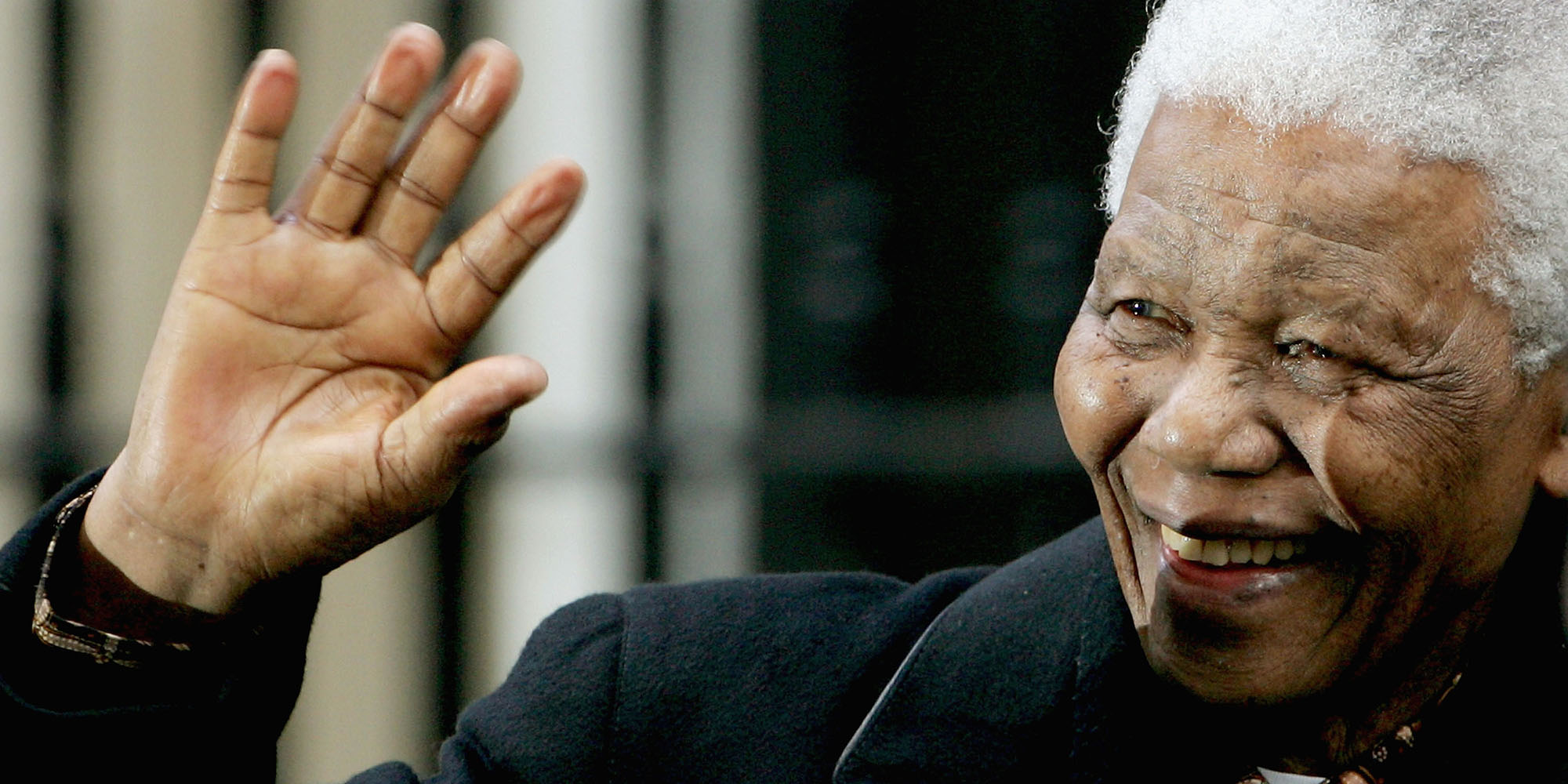LONG WALK TO FREEDOM, 30 YEARS ON
Newly released Mandela interview tapes bring Madiba to life again

Nelson Mandela’s ghostwriter, Richard Stengel, spent almost 60 hours recording the interviews that would provide material for the book ‘Long Walk to Freedom’. In a new podcast series, audio from the talks is woven together with Stengel’s recollections to provide a fascinating new portrait of South Africa’s most famous son.
Long Walk to Freedom is widely considered one of the greatest autobiographies of all time, but credit for that has too seldom gone where it arguably belongs: to Nelson Mandela’s ghostwriter, Richard Stengel.
Publishers Little, Brown and Company had signed Mandela up for a book almost as soon as he left prison, but there was never any suggestion that Mandela himself would have the time to write his own life story.
“He was adapting to the modern world, he was worrying about whether there would be a civil war in South Africa; he had 10,000 more important things to do,” Stengel told Daily Maverick this week.
There’s another aspect, too: “If Mandela had done it, it would have been an 800-page history of the ANC,” Stengel quips, in reference to the statesman’s passionate love for the movement he led.

Richard Stengel, author and former editor of TIME. (Photo: Jemal Countess / Getty Images for TIME)
Stengel was a 37-year-old US journalist in 1993 when he sat down with Mandela, then 72, to conduct the series of interviews that would become Mandela’s international bestseller.
The then little-known Stengel was not Mandela’s choice.
“He had decided he wanted [renowned South African author] Es’kia Mphahlele, so Zeke [Mphahlele] was hired to write on it,” Stengel says.
But what Mphahlele — who died in 2008 — ended up producing was more of a kind of “novelisation with Mandela quotes”, in Stengel’s words, and the publishers weren’t happy.
At some point, Stengel believes, Nobel literature laureate Nadine Gordimer was working on a plan for the book with Mandela. By December 1992, however, a ghostwriter had still not been formally signed up for the project and time was ticking.
William Phillips, the editor-in-chief of Little, Brown and Company, was given Stengel’s non-fiction work on South Africa to read and decided that Stengel might just be the person for the job. After some strained but cordial initial meetings with Mandela, who took a dim view of Stengel’s relatively youthful age, it was agreed that work could proceed.
Mandela: The Lost Tapes
Now, for the first time, the public has been granted access to the collaboration that ensued between Mandela and Stengel — via the 10-episode Audible podcast Mandela: The Lost Tapes.

The reference to the tapes as “lost” is poetic licence, Stengel freely admitted to Daily Maverick: the recordings have in fact always belonged to the Nelson Mandela Foundation, per the ghostwriting contract, and were formally returned in 2010.
Over the course of the 10 episodes, Stengel covers the most significant aspects and chronology of Mandela’s life. The facts will be familiar to most South African listeners; what makes the series wonderful listening regardless is the manner in which it brings Mandela to life once more, and the value of Stengel’s observations.
“It’s hard to explain how little Mandela knew about modern life,” Stengel recollects in the first episode.
Having been in prison since 1963, so many cultural and political currents had passed Mandela by: gay rights, women’s rights, the Beatles, computers…
The Mandela we hear in the recordings is a man with an effectively “Victorian” sensibility, as Stengel suggested to Daily Maverick. He is unflappable, courteous and exceedingly prim and proper: in the second episode, he can be heard revising an anecdote about apartheid toilets for Stengel because he does not wish the word “urinating” to feature in his book.
Visit Daily Maverick’s home page for more news, analysis and investigations
One might think that Mandela would be a ghostwriter’s dream, on account of his extraordinary personal story. But what emerges most clearly from the tapes is just how hard Stengel had to work for his material.
Because the ANC had yet to take power, for instance, Mandela refused to talk about certain tactics used in the Struggle as it might still be necessary to deploy them. (He can be heard raising this in the recordings with regard to the arrangements around Liliesleaf Farm.)
Mandela also “wanted a book that wouldn’t depart from the ANC line”, Stengel explains in the podcast. This was particularly the case because South Africa’s first democratic elections still lay ahead, and the ANC president felt he could not risk committing anything to print which might alienate his electorate.
He refused to discuss his divorce from his first wife, Evelyn, for instance, on the grounds that conservative older Africans might disapprove.
Mandela was, in general, hugely reluctant to talk about anything related to his private life, presenting something of a nightmare for any aspirant biographer.
Says Stengel: “Mandela believed that black South Africans wouldn’t want to hear him talking about matters of the heart like an American.”
To give an example, this is the sum total that Stengel was able to extract from Mandela on the topic of Evelyn’s personality: “She was a well-behaved, quiet lady.”

(Photo: Ian Waldie / Getty Images)
‘Mandela was a democratic revolutionary’
Stengel told Daily Maverick that he had not listened to the tapes since he conducted the interviews in the early 1990s, so to revisit them now was a journey back in time for him too.
At 67, Stengel is now much closer to Madiba’s age on the tapes than he is to his younger self when the recordings were made.
“I hear things in his voice now I think I didn’t hear then. Wistfulness, loneliness,” he muses.
“I feel for him more. In his personal life, it was an incredibly difficult time. I used to go to see him at his Houghton house and there was nobody around.”
The podcast series concludes on a note of poignant intimacy between Mandela and Stengel, but the writer is under no illusions that he ever truly overcame the distance that Mandela kept between himself and even some of his closest comrades.
“Many people love me from afar, but very few from up close,” Mandela was fond of saying; the reality, in Stengel’s view, is that he rarely admitted others to his most private inner sanctum.
Watch: Richard Stengel’s address to The Gathering, 24 November 2022.
Mandela’s legacy in South Africa has become more complicated in recent years, as the concessions he made during the transition to democracy are held up as responsible in part for the maintenance of grotesque social and economic inequality.
Stengel finds some of this discourse frustrating, in its apparent lack of consideration of historical context.
“Did he give up too much to get to that [democratic] dispensation? Maybe, but he was trying to avoid a holocaust!” he says with animation.
If South African listeners take away anything from the podcast, Stengel says, he would like it to be the awareness that Mandela was a “democratic revolutionary”.
The ANC leader never needed fancy political consultants to remind him to stay “on message”, says Stengel, because he was always on message.
“He wasn’t a Santa Claus figure. He was the founder of Umkhonto weSizwe. He was hard-headed and pragmatic. He wasn’t an ideologue. He was an African nationalist. Let people still criticise, but never doubt the integrity of what he stood for.” DM




















 Become an Insider
Become an Insider
Mandela’s steely determination to stick to his principles is what is so absent in the ANC leadership today. Particularly his unwavering approach to human rights.
Today we have this wishy washy russia leaning ideology which makes human rights expendable as long it makes putin smile. Resulting in the acceptance of appalling living conditions in most of our municipal areas all of which demonstrate a serious erosion of what is promised in our Bill of Rights.
The troubling thing about Stengel is that he never bothered to explain his reasoning for leaving out some rather controversial sections that appeared in Mandela’s secret prison manuscript when writing ‘Long Walk to Freedom’. The manuscript was kept under lock and key by the South African Communist Party for many years, given to Stengel to read in 1995, then placed back under wraps before quietly being released into the public domain in 2014 a few weeks after his death (it’s now available online). It reveals that Mandela was indeed a fully-fledged member of the SACP in 1963, that he took a dim view of American foreign policy in the early 60s and had a soft spot for Cuba. All old hat from today’s perspective to be sure. But then we get to his premature conversion to violence. In ‘Long Walk to Freedom’ Stengel describes Mandela as a moderate black nationalist, clinging to hope of peaceful change until it was extinguished by the Sharpeville massacre of 1960. However, in the prison manuscript we find him plotting war as early as 1953, when he sent a comrade on a secret mission to beg guns and money from Communist China. ‘I was bitter and felt ever more strongly that SA whites need another Isandlwana,’ Mandela wrote in the manuscript. But perhaps Stengel did explain his reasoning, inadvertently, in a New York Times interview with Alexis Soloski over the release of tapes last November. ‘I loved him. I’m unambiguous about that,’ said the former Times magazine editor